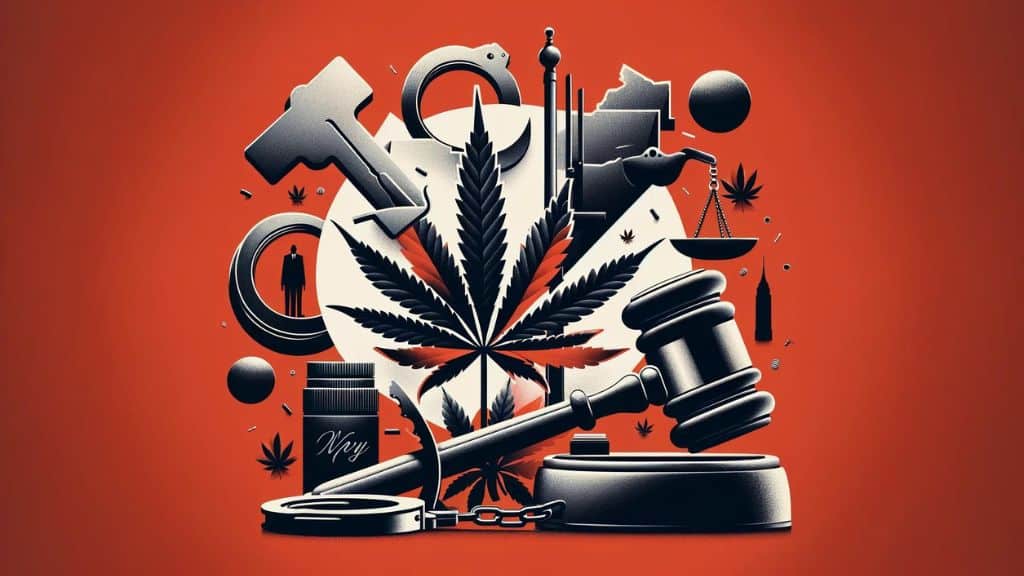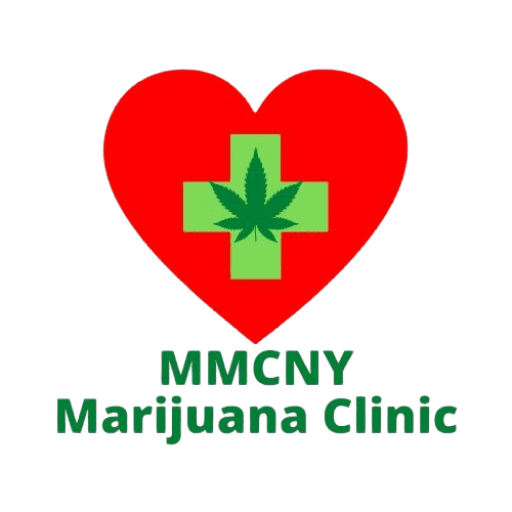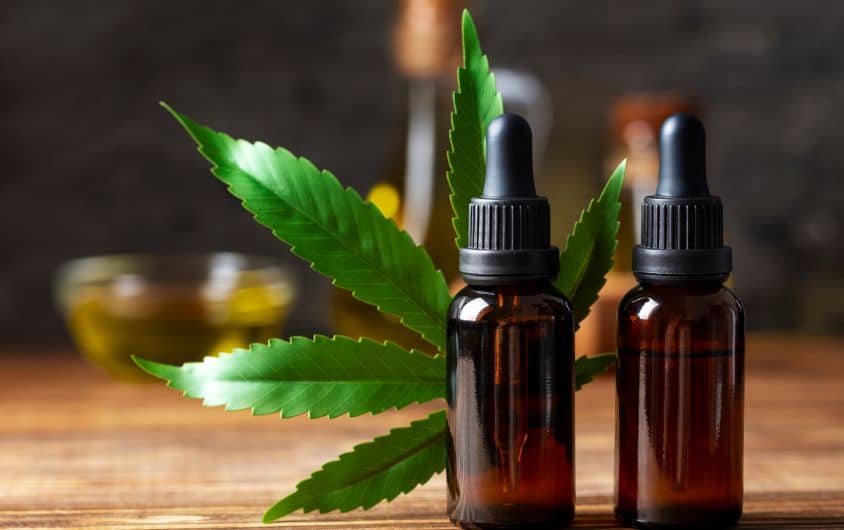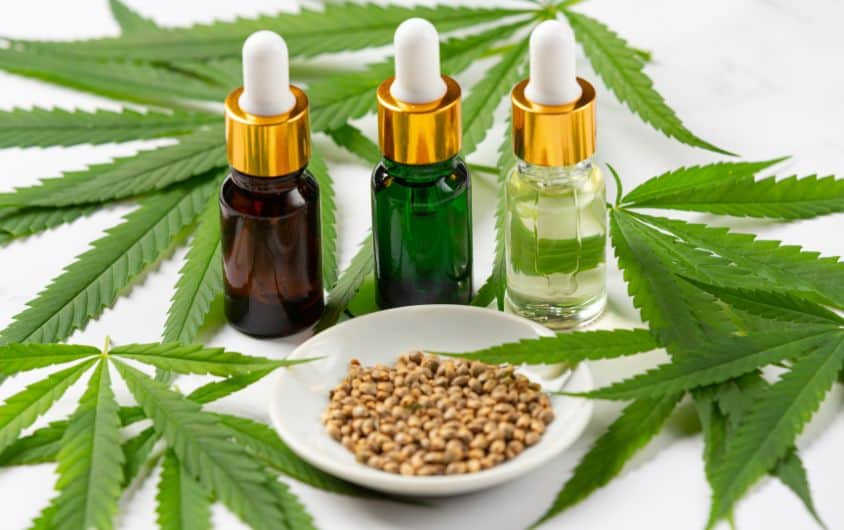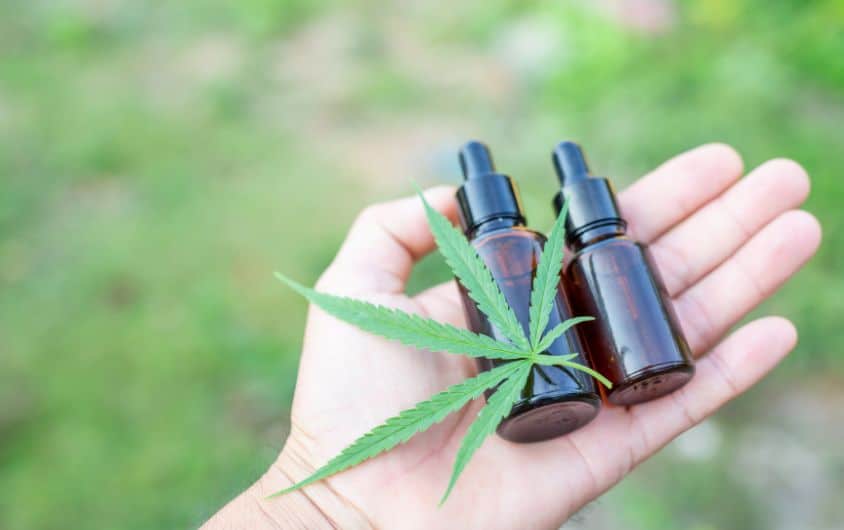Understanding the legal penalties for misusing medical marijuana in New York is crucial for patients and caregivers alike. New York’s medical marijuana laws are designed to ensure that patients benefit from the therapeutic uses of cannabis while preventing recreational misuse. Misuse can lead to significant legal consequences, including fines and imprisonment, depending on the severity of the violation.
This blog delves into the intricacies of New York’s legal framework surrounding medical marijuana, offering valuable insights into how patients can navigate these laws responsibly. It underscores the importance of adhering to medical recommendations and staying informed about the legal boundaries of medical marijuana use.
By fostering a deeper understanding of the state’s regulations, the blog aims to empower readers to make informed decisions, ensuring they fully benefit from medical marijuana’s therapeutic potential without facing adverse legal repercussions.
Table of Contents
Toggle- What constitutes the misuse of medical marijuana in New York?
- Why is it important to understand the legal framework surrounding medical marijuana?
- What Are the Legal Penalties for Misusing Medical Marijuana in New York?
- Who Enforces Medical Marijuana Laws in New York?
- How Can Penalties Differ Based on the Type of Misuse?
- What Legal Recourses Are Available for Those Accused of Misusing Medical Marijuana?
- How Does Misuse Impact Medical Marijuana Patients in New York?
- What Role Do Healthcare Providers Play in Preventing Misuse?
- Can Misinterpreting a Medical Marijuana Recommendation Lead to Legal Issues?
- Conclusion
What constitutes the misuse of medical marijuana in New York?
In New York, the legal landscape surrounding medical marijuana has evolved significantly, particularly with the passage of the Marijuana Regulation and Taxation Act (MRTA) in March 2021. This legislation not only legalized adult-use cannabis but also expanded the state’s medical marijuana program, emphasizing the need to understand both the opportunities and the legal boundaries it presents.
Misusing medical marijuana in New York involves actions such as possessing more than the legally allowed amount, using it for non-medical purposes, or diverting it to others who are not legally permitted to possess medical cannabis. Given the state’s regulatory framework, it’s crucial for patients and providers to adhere strictly to the guidelines to avoid legal penalties.
Why is it important to understand the legal framework surrounding medical marijuana?
Understanding the legal framework surrounding medical marijuana is critical for several reasons. Firstly, it ensures that patients can access the care they need within the bounds of the law, enhancing the effectiveness and safety of their treatment. Additionally, it helps to protect individuals from potential legal consequences that can arise from unintentional misuse.
As of March 2023, significant changes have been made to how medical marijuana can be accessed in New York. Patients no longer need a medical marijuana card but instead require a certification from a qualified doctor. This MMJ certification automatically registers the patient with the state and provides them with a registration ID number for purchasing medical marijuana products. The state’s approach, now prioritizing access and safety, allows practitioners to certify patients for medical cannabis without a predefined list of qualifying conditions, thereby expanding patient eligibility based on professional medical judgment.
For healthcare providers, this means an increased responsibility to ensure patients are adequately informed about their treatment and the legal aspects of medical marijuana use. Providers are encouraged to undergo approved educational courses to certify patients responsibly.
What Are the Legal Penalties for Misusing Medical Marijuana in New York?
State Law Definitions of Misuse
In New York, the misuse of medical marijuana falls under the broader umbrella of cannabis regulations. Since the Marihuana Regulation and Taxation Act (MRTA) was enacted on March 31, 2021, it has become lawful for individuals aged 21 and over to possess, obtain, or transport up to 3 ounces of cannabis and up to 24 grams of concentrated cannabis. This legislation also allows the transfer of similar amounts without compensation to another adult of legal age.
However, there are specific restrictions on where cannabis can be smoked or vaped, similar to tobacco smoking regulations, and it remains illegal to possess or sell amounts exceeding the legal limits.
Consequences of Exceeding Legal Possession Limits
Possessing more than the legally allowed amount of cannabis results in varying degrees of penalties based on the quantity. For instance:
- Possession of 3 to 16 ounces of cannabis or 24 grams to 5 ounces of concentrated cannabis can lead to a fine of not more than $125.
- Possession amounts ranging from 1 pound to 5 pounds of cannabis, or 5 ounces to 2 pounds of concentrated cannabis, are classified as a Class A misdemeanor.
- For quantities between 5 to 10 pounds of cannabis or 2 to 4 pounds of concentrated cannabis, the offense escalates to a Class E felony.
- Possession of 10 pounds or more of cannabis or 4 pounds or more of concentrated cannabis constitutes a Class D felony.
It’s crucial to understand that these penalties reflect the state’s commitment to regulating the use and distribution of cannabis within safe and legal boundaries. The state has set these rules to prevent abuse and unauthorized distribution, aiming to maintain public safety and health.
Driving Under the Influence
Driving while impaired by drugs (DWAI-Drugs), including marijuana, is a serious offense in New York. The penalties for a DWAI-Drugs offense depend on the number of offenses:
- A first-time violation is a misdemeanor, potentially leading to a year in prison, fines up to $1,000, probation up to three years, and a minimum six-month driver’s license suspension.
- A second offense within ten years is a Class E felony, with higher fines and potential prison time.
- A third offense within ten years escalates to a Class D felony, with even steeper fines and longer prison sentences.
Driving under the influence of marijuana not only poses legal risks but also endangers the driver, passengers, and others on the road. New York State law strictly prohibits impaired driving, emphasizing the importance of public safety and responsible substance use.
Who Enforces Medical Marijuana Laws in New York?
State Agencies Responsible for Monitoring Compliance
In New York, the enforcement and monitoring of medical marijuana regulations fall under the jurisdiction of the Office of Cannabis Management (OCM) and the Cannabis Control Board. These bodies were established following the enactment of the Marihuana Regulation and Taxation Act (MRTA) on March 31, 2021. The MRTA legalized not only adult-use cannabis but also set the regulatory framework for medical and hemp cannabis, comprehensively overseeing the cultivation, processing, distribution, and sale of these products within the state.
The OCM is responsible for issuing licenses and developing regulations that outline business participation in New York’s cannabis industry, including medical cannabis. It works alongside the Cannabis Control Board to ensure that the state’s cannabis industry operates within the legal framework established by the MRTA, aiming to protect public health and safety by providing access to safe, tested, and regulated cannabis products.
Enforcement of Medical Marijuana Regulations
The enforcement mechanisms include establishing quality assurance, product manufacturing standards, laboratory testing standards, and packaging and labeling requirements for cannabis and cannabis products. The OCM, along with the Cannabis Control Board, plays a pivotal role in creating a social and economic equity program. This initiative encourages participation from small businesses and individuals from communities disproportionately harmed by disparate cannabis enforcement in the new industry.
For medical marijuana, specifically, after the March 2021 amendments, the state improved access for medical patients through various means such as expanding qualifying medical conditions and increasing the number of caregivers a patient may designate. The medical program allows thousands of New Yorkers to gain access to safe, lab-tested medical cannabis treatment and aims to lay the foundation for an equitable adult-use cannabis market.
The regulatory process for cannabis in New York is governed by Article 2 of the State Administrative Procedure Act (SAPA), which mandates how regulations are proposed, commented on, and adopted within the state. This process ensures that the regulations governing medical marijuana, among other cannabis-related activities, are subject to public review and input before finalization. The OCM’s Legal Division administers this regulatory process, further emphasizing the state’s commitment to transparent and participatory governance in the realm of cannabis management.
How Can Penalties Differ Based on the Type of Misuse?
In New York, the distinction between medical and recreational marijuana use shapes the legal landscape and determines the penalties for misuse. Both medical and recreational marijuana are legal in New York. However, the state’s regulatory framework imposes specific limits on possession and outlines consequences for violations that vary based on the nature of the misuse—whether for medical or recreational purposes.
Differences in Legal Use
- Recreational Marijuana: Since the passage of the Marihuana Regulation and Taxation Act (MRTA) in March 2021, adults in New York can possess up to 3 ounces of marijuana and up to 24 grams of concentrates for recreational use. There are increased possession limits for cannabis stored at home and provisions for growing up to 6 plants.
- Medical Marijuana: Medical marijuana has been legal since 2014, allowing patients with specific qualifying conditions to purchase cannabis from licensed dispensaries. As of March 2023, the requirement for a medical marijuana card was replaced by a need for a medical marijuana certification from a qualified doctor. Patients can possess up to a 60-day supply of cannabis, but the types of cannabis products they can purchase are regulated.
Penalties for Misuse
- Minor Violations: For recreational users, possessing more than the allowed amount but up to 8 ounces is considered a misdemeanor, punishable by up to 1 year in prison and a fine of $1,000. For medical users, violations may include possessing cannabis without proper certification or possessing types of cannabis not permitted for medical use.
- Major Violations: Possession of larger amounts, beyond 8 ounces, shifts to felony status, with penalties ranging from 4 to 15 years in prison and fines between $5,000 to $15,000. The severity of penalties escalates with the amount of cannabis involved.
- Federal Law Considerations: It’s crucial to remember that despite state legalization, marijuana remains illegal under federal law. This discrepancy advises caution, especially when traveling, as federal law prohibits the transportation of cannabis across state lines.
The enforcement of marijuana laws in New York aims to balance the legalization with strict regulations to prevent misuse. While the state has made significant strides towards decriminalizing marijuana and establishing a legal market for its sale and consumption, adherence to possession limits and understanding the legal ramifications of misuse are essential for residents and visitors alike.
What Legal Recourses Are Available for Those Accused of Misusing Medical Marijuana?
For individuals accused of misusing medical marijuana in New York, there are specific legal recourses and defenses available, especially when the alleged misuse intersects with medical necessity or probation conditions.
Contesting Allegations of Misuse
Individuals accused of misusing medical marijuana have the option to contest these allegations by demonstrating that their use falls within the legal parameters set by New York State’s medical marijuana program. This involves showing that they have a valid medical marijuana certification from a licensed physician for a qualifying condition under New York Public Health Law §3369. This law protects certified patients from arrest, prosecution, or penalties solely related to their medical marijuana use, provided the marijuana is prescribed and used in accordance with state regulations.
Legal Defenses
- Medical Necessity: Individuals can use the defense of medical necessity by proving their medical condition qualifies under New York’s Public Health Law for the prescription of medical marijuana. The law clearly outlines the conditions and criteria for a patient to be considered certified for medical marijuana use.
- Probation Conditions: For those on probation, New York courts have allowed for amendments to probationary sentences to permit the use of prescribed medical marijuana, provided the individual’s offense was not drug-related. The courts require that the individual obtains a prescription from a licensed physician, possesses no marijuana beyond the prescribed dose, and adheres to all other probationary conditions. This was highlighted in a case where the court permitted an individual on probation for a non-drug related felony to use medical marijuana prescribed for chronic pain management after a severe injury, as long as the use complied with state medical marijuana laws.
How Does Misuse Impact Medical Marijuana Patients in New York?
Misuse of medical marijuana in New York not only affects individual patients in terms of legal consequences and access to their treatment but also has broader implications for the perception of medical marijuana use as a whole.
Implications for Patient Access and Treatment Options
Misuse of medical marijuana can lead to stricter regulations and oversight, potentially making it more challenging for patients to access their medications promptly. New York has made significant strides in improving access for medical patients through the Marihuana Regulation and Taxation Act (MRTA) which amended the program to include the expansion of qualifying medical conditions and the increase in the number of caregivers a patient may designate.
The transition from medical marijuana cards to a certification system in March 2023 further streamlined patient access by simplifying the registration process and allowing patients to purchase medical marijuana products with a certification from a registered healthcare provider.
Impact on the Perception of Medical Marijuana Users
Misuse by some individuals can contribute to a negative perception of all medical marijuana users, potentially stigmatizing legitimate use for medical purposes. This could influence public opinion and potentially affect policy decisions, leading to more restrictive access or additional hurdles for patients genuinely in need. Maintaining a responsible and compliant medical marijuana community is crucial for safeguarding the program’s integrity and ensuring ongoing support from the broader public and policymakers.
What Role Do Healthcare Providers Play in Preventing Misuse?
Healthcare providers play a pivotal role in the New York State Medical Cannabis Program, ensuring that medical cannabis is accessible to certified patients in a manner that safeguards patient health and safety. Their responsibilities extend beyond merely prescribing cannabis; they are integral to preventing misuse and ensuring that patients are well-informed about their treatment and the legalities surrounding medical cannabis use.
Ensuring Patient Understanding and Compliance
Healthcare providers must ensure that their patients understand how to use medical cannabis responsibly and in accordance with state laws. This involves educating patients on the legal use, possession limits, and approved methods of consumption. By fostering an open line of communication, healthcare providers can address any questions or concerns their patients may have, thereby preventing misuse.
Providers are required to have an appropriate practitioner license and DEA registration to lawfully prescribe controlled substances within New York State. They must also complete a mandatory training course before they can begin certifying patients for medical cannabis, which includes content on the pharmacology of cannabis, contraindications, side effects, adverse reactions, overdose prevention, drug interactions, dosing, routes of administration, and the risks and benefits associated with medical cannabis use.
Responsibilities in Recommending Medical Cannabis
Healthcare providers are tasked with carefully evaluating whether a patient’s condition qualifies for medical cannabis treatment under New York State regulations. This involves a thorough assessment of the patient’s medical history and current health status to determine if the therapeutic benefits of cannabis outweigh the potential risks. Conditions that commonly qualify for medical cannabis treatment include chronic pain, epilepsy, multiple sclerosis, Parkinson’s disease, PTSD, and cancer, among others. Once a patient is deemed eligible, the provider must use the Medical Cannabis Data Management System (MCDMS) to issue a certification for medical cannabis.
The Department of Health (DOH) has set forth strict clinical guidelines for prescribing medical cannabis, which includes defining clinical criteria for patient certification and establishing criteria for qualified prescribers. This ensures that medical cannabis is recommended only to patients with serious conditions who are likely to benefit from its use.
Additionally, the Compassionate Care Act, under which the medical marijuana program operates, includes conditions when clinical association with or complication of the condition results in specific symptoms like severe nausea and seizures. DOH maintains the authority to revoke a certification for any patient that violates any provision of the law, underscoring the importance of compliance.
Can Misinterpreting a Medical Marijuana Recommendation Lead to Legal Issues?
Misinterpreting a medical marijuana recommendation can indeed lead to legal issues, stemming from the complex legal landscape surrounding medical cannabis use. Both patients and healthcare providers must navigate a delicate balance between state laws that permit medical cannabis use and federal regulations that contradict them.
Common Misunderstandings about Medical Marijuana Recommendations
One common misunderstanding involves the nature of the recommendation itself. Unlike traditional prescriptions, physicians in states where medical cannabis is legal issue recommendations or certifications rather than prescriptions, due to cannabis’s Schedule I status at the federal level. This classification makes it technically illegal to prescribe cannabis, leading to a “recommendation loophole” upheld by court decisions like Conant v. Walters. Physicians, therefore, must ensure they are operating within the bounds of state laws and medical boards’ guidelines to avoid legal jeopardy.
Patients often misconstrue the flexibility in choosing cannabis types and consumption methods as a lack of need for medical guidance. However, the variability in cannabis products and the absence of standardized dosing can complicate treatment plans and patient outcomes. Ensuring patients understand the specifics of their recommendation, including the legal limits on the amount they can possess and the types of cannabis products they are allowed to use, is crucial for compliance and safety.
Ensuring Correct Follow-up on Medical Marijuana Recommendations
To correctly follow their medical marijuana recommendation, patients should engage in open and continuous communication with their healthcare providers. This involves understanding the conditions for which the cannabis is recommended and adhering strictly to the dosing and administration methods advised by their physicians.
Healthcare providers are encouraged to document all aspects of patient evaluation, recommendation, and ongoing monitoring to support patient care and legal compliance. They should also educate patients on the risks and benefits of medical cannabis use, taking care to provide information on safe consumption practices and the legal aspects of medical cannabis use in their state.
Conclusion
Understanding the legal penalties for misusing medical marijuana in New York is essential for both patients and providers. The state’s regulations are designed to ensure safe and legal access to cannabis for therapeutic use while penalizing unlawful possession, distribution, and use outside the prescribed guidelines. New York has established a framework through the Medical Cannabis Program and the Marihuana Regulation and Taxation Act (MRTA) that outlines the conditions for legal use, possession limits, and the roles of healthcare providers in certifying patients.
Misinterpretations or violations of these regulations can lead to legal consequences ranging from fines to incarceration, depending on the severity of the offense. As the legal landscape continues to evolve, staying informed about the current laws and guidelines is crucial for anyone involved in the medical cannabis community in New York.
Resources
https://cannabis.ny.gov/medical-cannabis
https://cannabis.ny.gov/cannabis-law-overview
https://nycourts.gov/courthelp/Criminal/marihuanaLaw.shtml
https://www.findlaw.com/state/new-york-law/new-york-marijuana-laws.html
https://marijuanaandthelaw.com/new-york-cannabis-cultivation-laws/
https://cannabis.ny.gov/marihuana-regulation-and-taxation-act-mrta
https://cannabis.ny.gov/medical-cannabis
https://cfah.org/new-york-marijuana-laws/
https://lotempiopc.com/penalties-marijuana-possession-new-york/
https://www.ncbi.nlm.nih.gov/books/NBK577724/
https://journalofethics.ama-assn.org/article/physicians-medical-marijuana-and-law/2014-09

